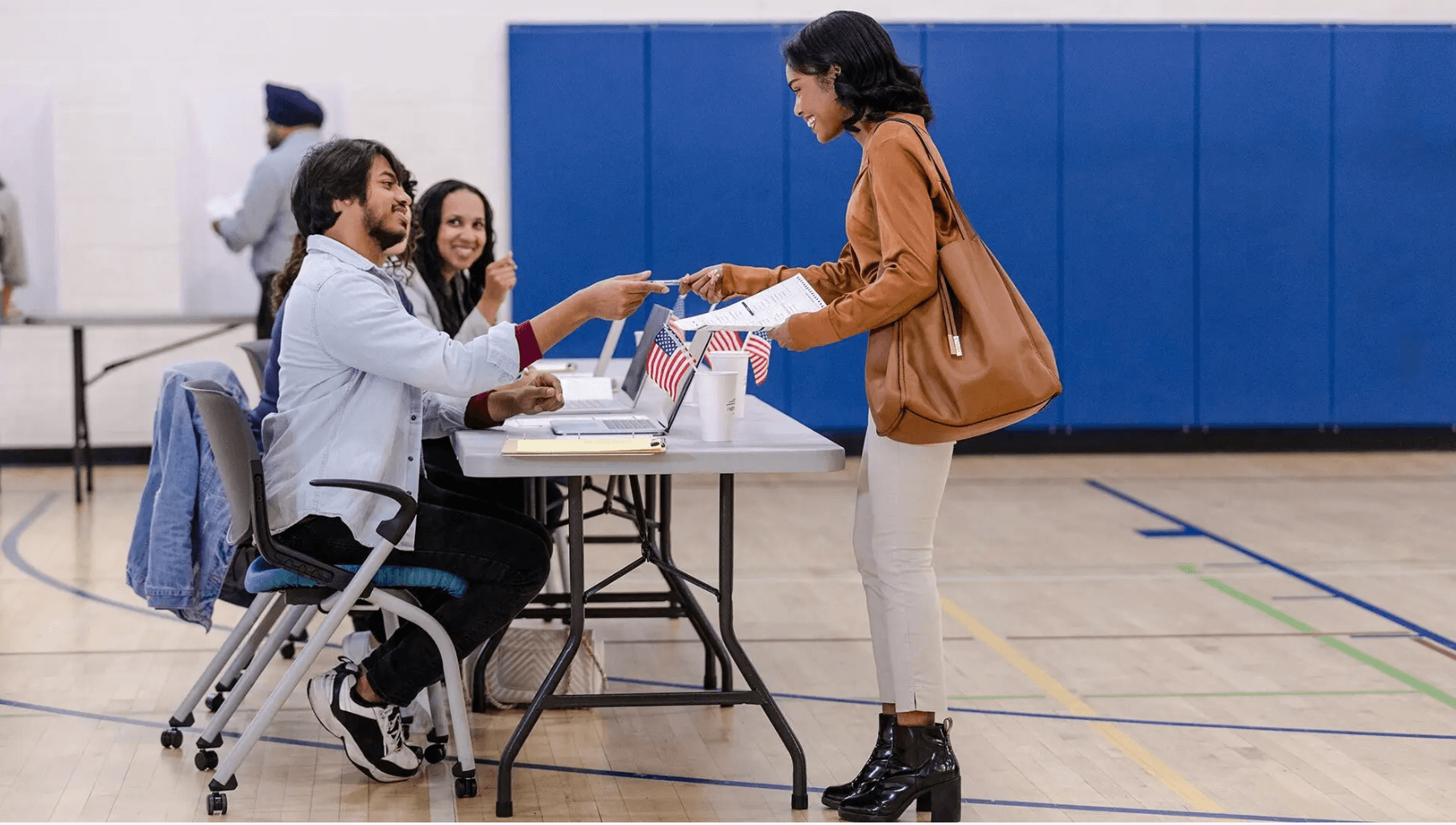
The University of Maryland will develop training for student poll workers from all University System of Maryland campuses, funded by a new grant from the U.S. Election Assistance Commission.
UMD will receive the bulk of the $78,521 grant announced on Friday to help each USM institution bolster civic engagement among young voters in the November 2024 election.
The Civic Innovation Center (CivIC) in UMD’s School of Public Policy will work with the Office of Leadership and Community Learning (LCSL) to establish a robust resource hub, which will be disseminated to all USM universities to provide the training and to help connect trained student poll workers with counties in Maryland that may require additional support.
“Direct participation in our democratic system, particularly at a younger age, builds habits of engagement that last a lifetime,” said CivIC Director Paul Brown. “The future is now in terms of the need for, and ability of, students to serve as poll workers.”
Despite the record turnout in the 2020 presidential election, the number of poll workers was stagnant, according to a 2020 report from the EAC. It found that 6.2% of poll workers were ages 18-25, up from 4.5% in 2016, but still far short of the potential that college students, as a demographic group, hold to meet the demand for poll workers.
“By serving as poll workers, college students are helping make polling locations more representative and equitable,” said Courtney Holder, assistant director of the Adele H. Stamp Student Union who leads the LCSL. “When locations are fully staffed with sufficient numbers of poll workers, voters are less likely to experience long lines, be unjustly turned away or risk losing their polling location in an underserved community.”
She added that engaging as poll workers gives college students the opportunity to witness firsthand the intricacies of the voting process, understand voting security measures and actively contribute to ensuring the fairness and integrity of elections.
Collaborating with the Maryland State Board of Elections, UMD will create recruitment and training modules to equip students with the skills and knowledge needed to serve effectively as election poll workers. All USM universities will host recruiting events to attract participants.
UMD will also incorporate into the training targeted strategies such as multilingual messaging, partnerships with campus multicultural offices, collaboration with career services and support from faculty and administrators to ensure broad participation from diverse student populations. Each USM campus will have the opportunity to get a mini-grant and create a plan for the strategies they want to adopt.
Brown, also a co-principal investigator in the Maryland Democracy Initiative, envisions ways that the recruitment and training best practices associated with the grant might be adapted to younger students in high school. “MDI supports civic engagement at all stages of life, but building a solid foundation in the early years of education is critical. MDI’s work with the Maryland Civic Education Coalition and the Vote 16 Research Network will be a great avenue for bringing direct participation opportunities, such as serving as a poll worker, into the experience of high school students in Maryland.”
“Educating for democracy has been at the center of the USM mission from its beginning,” said Nancy Shapiro, USM associate vice chancellor for education and outreach. “We want our students to be fully prepared to contribute to the civic health of their communities and understand their responsibilities to preserve and protect our democracy.”
Adapted from a story that first appeared in Maryland Today.
